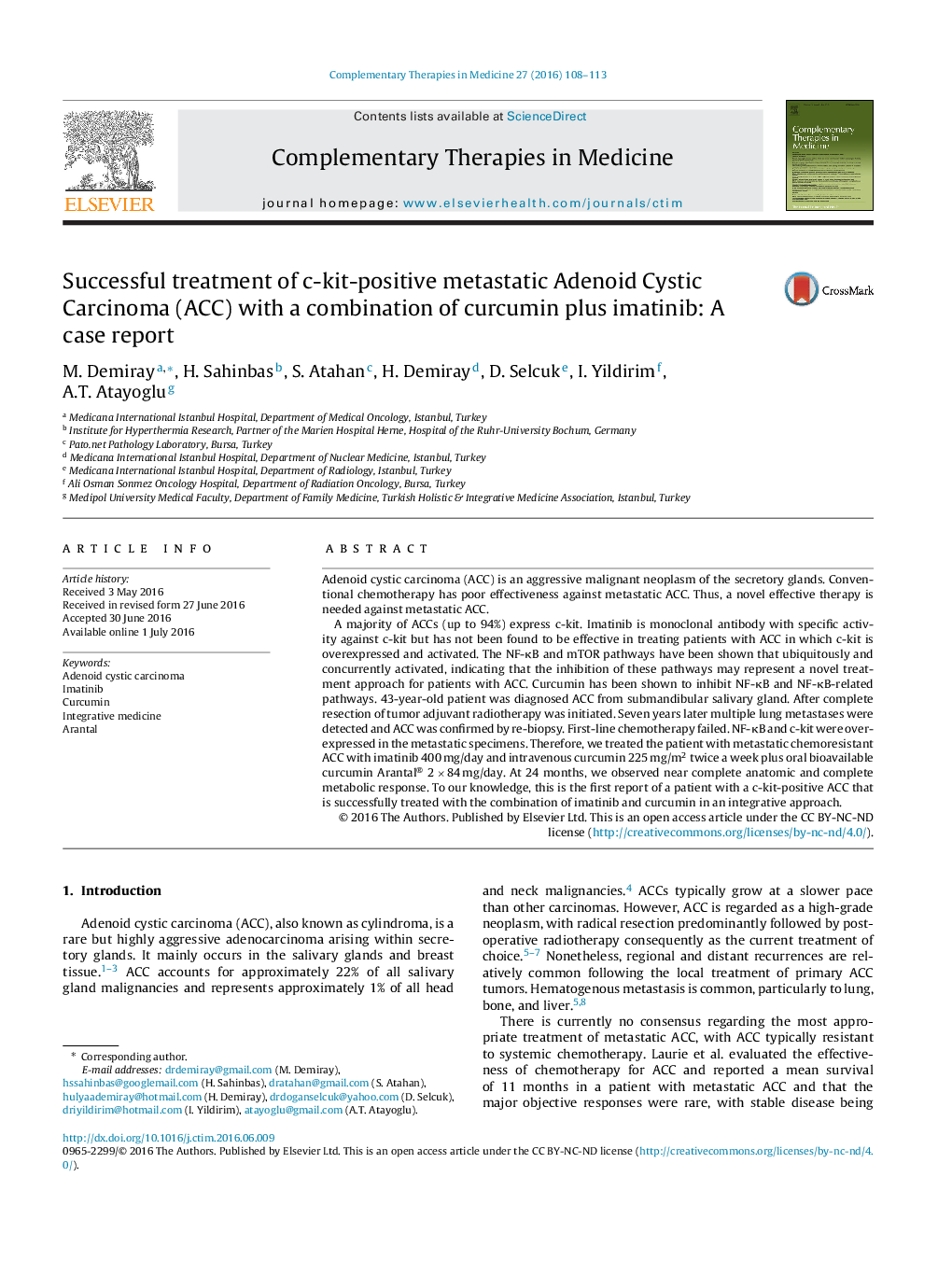| Article ID | Journal | Published Year | Pages | File Type |
|---|---|---|---|---|
| 5865362 | Complementary Therapies in Medicine | 2016 | 6 Pages |
Abstract
A majority of ACCs (up to 94%) express c-kit. Imatinib is monoclonal antibody with specific activity against c-kit but has not been found to be effective in treating patients with ACC in which c-kit is overexpressed and activated. The NF-κB and mTOR pathways have been shown that ubiquitously and concurrently activated, indicating that the inhibition of these pathways may represent a novel treatment approach for patients with ACC. Curcumin has been shown to inhibit NF-κB and NF-κB-related pathways. 43-year-old patient was diagnosed ACC from submandibular salivary gland. After complete resection of tumor adjuvant radiotherapy was initiated. Seven years later multiple lung metastases were detected and ACC was confirmed by re-biopsy. First-line chemotherapy failed. NF-κB and c-kit were overexpressed in the metastatic specimens. Therefore, we treated the patient with metastatic chemoresistant ACC with imatinib 400 mg/day and intravenous curcumin 225 mg/m2 twice a week plus oral bioavailable curcumin Arantal® 2 Ã 84 mg/day. At 24 months, we observed near complete anatomic and complete metabolic response. To our knowledge, this is the first report of a patient with a c-kit-positive ACC that is successfully treated with the combination of imatinib and curcumin in an integrative approach.
Related Topics
Health Sciences
Medicine and Dentistry
Complementary and Alternative Medicine
Authors
M. Demiray, H. Sahinbas, S. Atahan, H. Demiray, D. Selcuk, I. Yildirim, A.T. Atayoglu,
